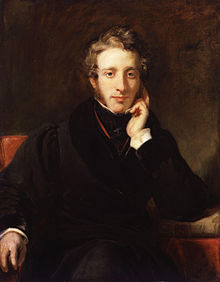Common good
what is shared and beneficial for all or most members of a given community
(Redirected from General good)
In philosophy, economics, and political science, the common good (also commonwealth, general welfare, or public benefit) refers to either what is shared and beneficial for all or most members of a given community, or alternatively, what is achieved by citizenship, collective action, and active participation in the realm of politics and public service. Early conceptions of the common good were set out by Ancient Greek philosophers, including Aristotle and Plato.

Quotes
edit- Unity, peace and security will come through the recognition—intelligently assessed—of the evils which have led to the present world situation, and then through the taking of those wise, compassionate and understanding steps which will lead to the establishing of right human relations, to the substitution of cooperation for the present competitive system, and by the education of the masses in every land as to the nature of true goodwill and its hitherto unused potency.
- Alice Bailey, Problems Of Humanity(1944)
- What at this moment appears to prevent world unity... ? The answer is not hard to find and involves all nations: nationalism, capitalism, competition, blind stupid greed. The mass of men need arousing to see that good comes to all men alike and not just to a few privileged groups, and to learn also that "hatred ceases not by hatred but that hatred ceases by love". This love is not a sentiment, but practical goodwill, expressing itself through individuals, in communities and among nations.
- Alice Bailey, Problems Of Humanity (1944)
- The world economic council (or whatever body represents the resources of the world) must free itself from fraudulent politics, capitalistic influence and its devious scheming; it must set the resources of the earth free for the use of humanity. This will be a lengthy task but it will be possible when world need is better appreciated. An enlightened public opinion will make the decisions of the economic council practical and possible. Sharing and cooperation must be taught instead of greed and competition.
- Alice Bailey, Problems Of Humanity, Chapter VI - The Problem of International Unity (1944)
- Most important on the bearings of their life and the peace of their commonwealths, is their universal agreement in the existence of a merciful beneficent Diety, and of a future world to the duration of which a century or two are moments too brief to waste upon thoughts of fame and power and avarice; while with that agreement is combined another—viz., since they can know nothing as to the nature of that Diety beyond the fact of His supreme goodness, nor of that future world beyond the fact of its felicitous existence, so their reason forbids all angry disputes on insoluble questions. Thus they secure for that state in the bowels of the earth what no community ever secured under the light of the stars—all the blessings and consolations of a religion without any of the evils and calamities which are engendered by strife between one religion and another. (Chapter XXVI)
- Edward Bulwer-Lytton in The Coming Race, (1871)
- Many of you are well enough off that … the tax cuts may have helped you. We're saying that for America to get back on track, we're probably going to cut that short and not give it to you. We're going to take things away from you on behalf of the common good.
- Hillary Clinton, Speech at Democratic Fundraiser, June 2004 [1]
- You are sure to encounter a certain kind of person who flies into a frenzy at the mere mention of the Masters. Such people are ready to put their trust in any shameless stock market speculation, they are ready to believe in any swindle, but for them the idea of the Common Good is inadmissible. 340.
- Morya, Leaves of Morya’s Garden II, Illumination, (1925)
- Spock: The needs of the many, outweigh...
- Kirk: The needs of the few.
- Spock: Or the one.
- Star Trek II: The Wrath of Khan written by Jack B. Sowards and Nicholas Meyer
- Throughout history, no tyrant ever rose to power except on the claim of representing ``the common good.´´ Napoleon ``served the common good´´ of France. Hitler is ``serving the common good´´ of Germany. Horrors which no man would dare consider for his own selfish sake are perpetrated with a clear conscience by ``altruists´´ who justify themselves by-the common good.
- Ayn Rand, Rand, Ayn. The Only Path to Tommorow, Readers Digest, January 1944, pp. 88-90
- The common good before the individual good. (Gemeinnutz geht vor Eigennutz)
- The National Socialist Program, Adolf Hitler proclaimed his party's program on February 24, 1920 in Munich, Germany. Nazi Ideology Before 1933: A Documentation, Barbara Miller Lane, Leila J. Rupp, introduction and translation, Manchester University Press (1978) p. 43.
- Konrad Heider translated this line as “The good of the state before the good of the individual” in his A History of National Socialism, (1935) p. 17.